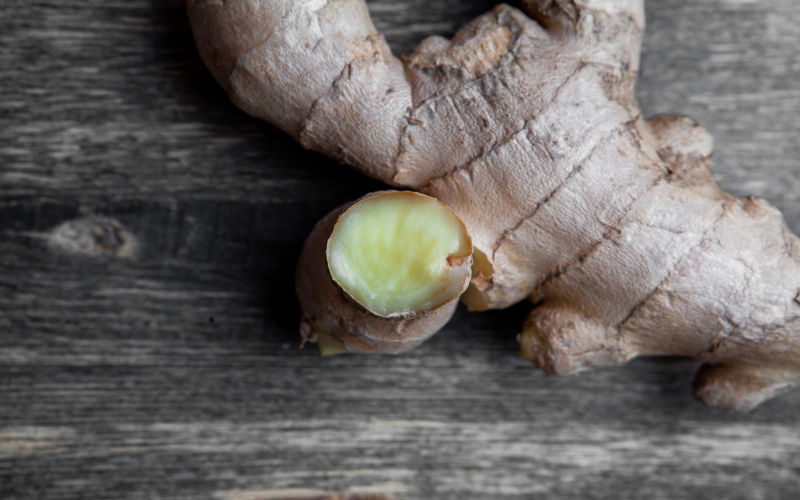Why ginger and cloves deserve a daily spot in your kitchen

A study from the University of Dar es Salaam found that drinking ginger-clove tea three times a week significantly improved antioxidant levels in participants within 30 days.
Two age-old spices, ginger and cloves, are enjoying a powerful comeback.
Long treasured in traditional medicine across Africa, Asia, and the Middle East, recent scientific studies are now confirming what many cultures have known for centuries: These two kitchen staples are more than just flavour enhancers, and they have great benefits in promoting good health.
More To Read
- Six natural remedies to ease a sore throat at home
- Parliament moves to regulate, integrate herbal medicine under proposed KEMRI Bill
- Uganda unveils herbal remedies for cancer care, eyes clinical trials
- How your spice rack could boost your immunity
- Spiced coffee: A comforting beverage with rich layers of depth and complexity
- Eastleigh's spices market: Growing popularity of Moringa, Densii, other healing herbs
From promoting good heart health to strengthening the immune system, here are eight science-backed reasons to add ginger and cloves to your daily tea or meals.
1. Protecting the heart naturally
A growing body of evidence suggests that ginger can reduce the risk of heart disease. A 2025 study published in the Journal of Nutritional Health linked daily ginger consumption to improved blood circulation, lower blood pressure, and reduced cholesterol levels.
Cloves are also rich in the compound eugenol, which also helps prevent blood clot formation and may reduce artery stiffness. When used together, they support a healthier heart without the side effects of synthetic supplements.
2. Potent anti-inflammatory powerhouses
Both ginger and cloves are loaded with anti-inflammatory compounds. Ginger contains gingerols, while cloves are rich in eugenol, both of which help block inflammation-causing enzymes in the body.
This makes them effective in easing chronic conditions such as arthritis, menstrual pain, and digestive inflammation.
A 2024 review in the African Journal of Phytotherapy concluded that daily clove tea reduced joint pain in patients with mild osteoarthritis within four weeks.
3. A natural digestive aid
Ginger has been used for centuries to soothe the stomach, and now science agrees. It helps stimulate saliva, bile, and gastric enzymes, speeding up digestion and relieving symptoms like bloating, nausea, and indigestion.
Studies have also found that cloves increase the secretion of digestive enzymes and reduce gas formation.
In a Kenyan household, it is not uncommon to end a heavy meal with a steaming cup of ginger-clove tea, and now we know why.
4. Immunity boost
As flu season approaches, adding ginger and cloves to your tea could offer a simple immune boost. Both spices are antibacterial, antiviral, and antifungal, helping the body fight off respiratory infections.
Ginger and cloves enhance white blood cell activity and protect the body against everyday pathogens.
5. Fighting free radicals with antioxidants
Cloves are considered one of the most antioxidant-rich foods available, scoring even higher than blueberries on the ORAC scale (a measure of antioxidant capacity).
Ginger is not far behind; its high antioxidants neutralise harmful free radicals in the body, reducing cellular damage and lowering the risk of chronic diseases like cancer and Alzheimer’s.
A study from the University of Dar es Salaam found that drinking ginger-clove tea three times a week significantly improved antioxidant levels in participants within 30 days.
6. Managing blood sugar naturally
Both spices have shown promise in balancing blood sugar.
Studies have found ginger to improve insulin sensitivity, while cloves slow the release of glucose after meals, preventing dangerous spikes. This is particularly beneficial for people with prediabetes or Type 2 diabetes.
What is fascinating is that a simple spice like clove can have a pharmacological effect on glucose metabolism.
Drink warm ginger and clove tea about 20–30 minutes after a meal.
7. Natural pain relief without pills
Cloves have been used traditionally as a toothache remedy, and now modern research supports their use as a mild analgesic.
Eugenol acts as a local anaesthetic and has anti-inflammatory properties, and when combined with ginger’s ability to ease muscle soreness, the duo can offer natural pain relief without side effects.
They are especially useful for menstrual cramps and post-exercise recovery, according to a 2023 review in East African Herbal Medicine Review.
While not magic bullets, these spices can complement a healthy lifestyle when used consistently.
In Eastleigh’s bustling food stalls or quiet kitchens in Thika, many Kenyans are returning to these natural remedies not just for flavour, but for everyday healing.
Top Stories Today
















































